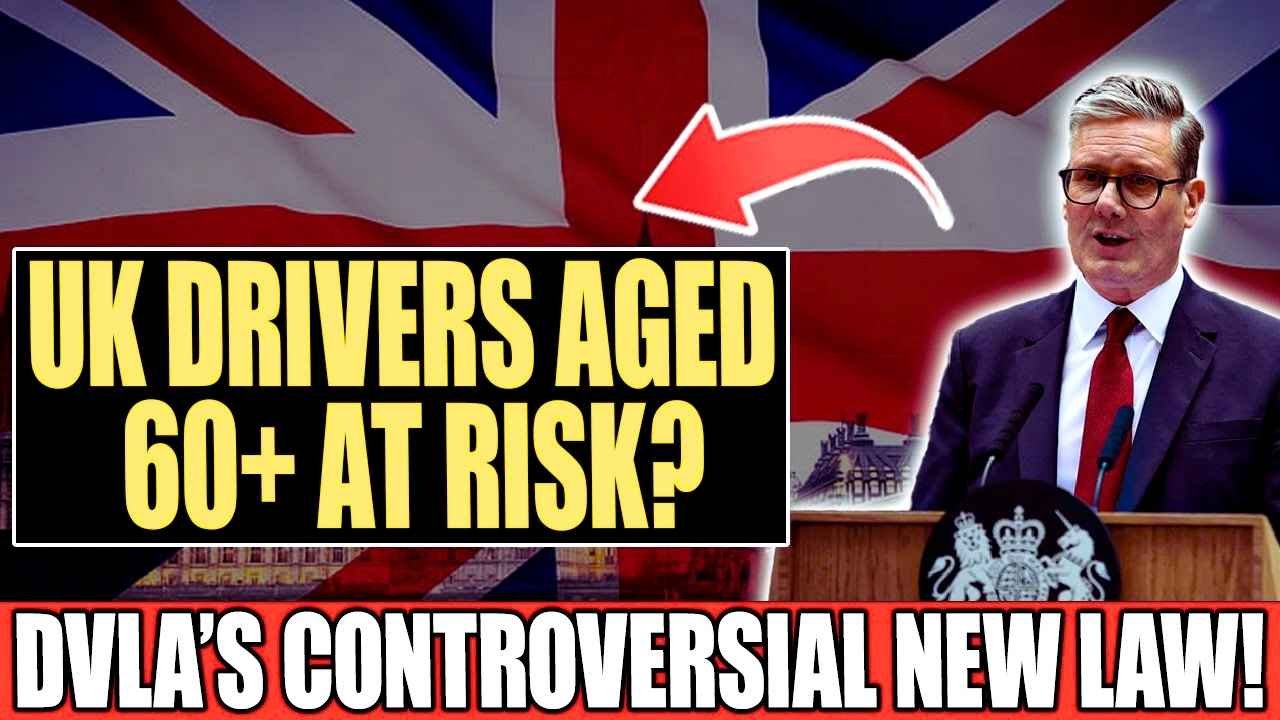Big changes are coming for UK drivers over 60, and they could affect your right to drive. From July 2025, the Driver and Vehicle Licensing Agency (DVLA) is planning new rules that might make it harder for older drivers to keep their licences. The aim is to make roads safer, but many worry it could take away their freedom. With stricter health checks and possible driving tests on the horizon, here’s what you need to understand to stay behind the wheel.
What’s Changing for Older Drivers?
Right now, drivers over 70 must renew their licence every three years with a simple health declaration. But starting July 2025, the DVLA wants to bring in tougher rules, especially for those over 60. If you have health issues like poor eyesight or conditions such as diabetes or heart problems, you might need a doctor’s note or even a driving assessment. The goal is to catch problems early, but it means more hoops to jump through for millions of pensioners.
Why Is This Happening?
The UK has over 6 million drivers aged 70 or older, and that number is growing fast. As people live longer, age-related issues like slower reflexes or weaker vision can make driving riskier. The DVLA says these changes are about keeping everyone safe, not punishing older drivers. Data shows older drivers don’t cause more crashes, but the government wants to be sure medical conditions don’t go unnoticed. Some call it fair, while others think it’s too harsh.
Who Will Be Affected Most?
Not every driver over 60 will face trouble. The new rules will likely hit hardest if you:
- Have medical conditions like dementia, glaucoma, or a recent stroke
- Have been reported for unsafe driving by family or doctors
- Hold a commercial licence for buses or lorries
- Have a history of traffic offences
If your health is good and your driving record is clean, you might just need a quick eye test or a GP’s signature to renew. But for others, the process could get complicated.
| Condition | Possible DVLA Action |
|---|---|
| Poor eyesight | Mandatory eye test |
| Cognitive issues | Cognitive assessment |
| Heart conditions | GP medical report |
| Recent accidents | Driving assessment |
How to Prepare for the Changes
To avoid losing your licence, start planning now. Book an eye test to check your vision meets the DVLA’s standard of reading a number plate from 20 metres. If you have health issues, talk to your GP early to get paperwork ready. Keep an eye on DVLA updates, as final details are expected in early 2025. You could also consider a voluntary driving assessment to boost your confidence or look into local transport options like buses or community schemes in case you need them.
What’s the Bigger Picture?
These rules are part of a bigger push to modernise UK driving laws. The DVLA is also moving to digital licences and easier online renewals, but for older drivers, the focus is on safety. Critics argue it could unfairly target pensioners, especially those who rely on cars to stay independent. There’s talk of appeals if your licence is restricted, and some groups are pushing for softer rules. For now, staying informed and proactive is the best way to keep driving legally and safely in 2025.
